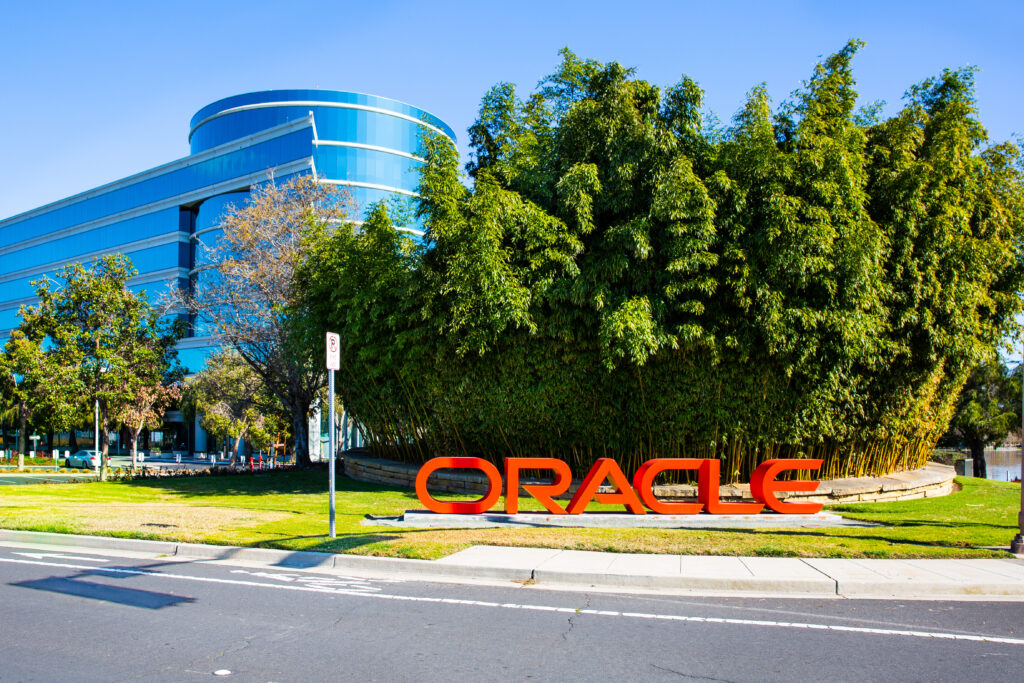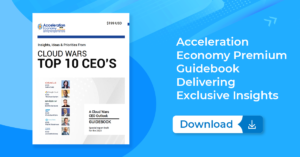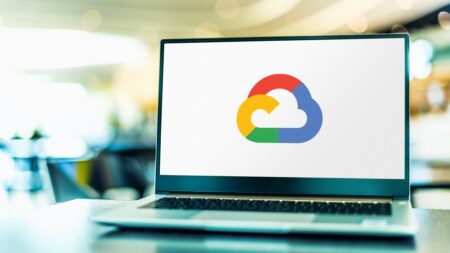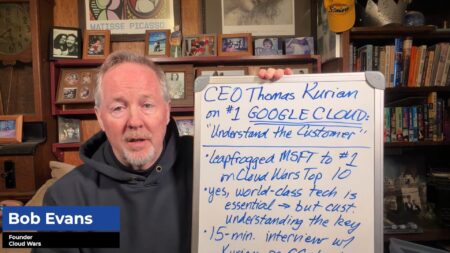
Declaring that Oracle is a “strange company,” chairman Larry Ellison last week outlined to a small group of analysts Oracle’s strategic differentiation in cloud infrastructure, databases, multi-cloud vision, cloud applications, and ability to build the world’s fastest and most powerful computer.
Making a surprise Zoom appearance during the Oracle Database Summit, Ellison answered questions on a wide range of subjects for 75 minutes and was unstintingly bullish on Oracle’s ability to use technological superiority to continue winning significant share from every competitor in the Cloud Wars.
Of the many topics Ellison covered in his unique and compelling fashion, I’m focusing today on three issues that have enormous implications for business customers as well as for primary competitors AWS, Workday, SAP, Google Cloud, Microsoft, and Snowflake. Those three are:
- Multi-cloud: Should it be closed and expensive or open and easy? Why Oracle wants to interconnect with everyone versus what Ellison calls AWS’s “preposterous” (current) policy.
- “Open” versus Open: What will a world of seamless data movement look like? The Oracle-Microsoft Interconnect strategy offers a compelling glimpse into a customer-centric future.
- “Ungodly” fast computers: Who just built the world’s fastest computer? (Hint: It involves Nvidia and a database company founded in 1977 whose chairman will be 79 years young in a few months.)
1. Multi-Cloud’s Future
Ellison was asked if he can foresee a time when the Oracle Autonomous Database will run on the AWS cloud.
“We’re already running our MySQL HeatWave on AWS. But let me answer your question this way: Today, Microsoft customers can access Autonomous Database in Azure Interconnect. And we think that’s the beginning of a very fundamental change in cloud: Right now, people think that since you’re in AWS, you’re stuck forever in AWS and you can’t talk to other clouds,” Ellison said.
“But that’s just not how the world works, so of course AWS should be connected to other clouds without fees and penalties — and the same with Azure. The idea that once you’re in AWS you can only use AWS is simply preposterous! I mean, ‘Well why should AWS talk to any other cloud?’ —That’s just a bizarre idea!”
Ellison continued: “We built our Cloud Interconnect to Microsoft and I think we’ll do the same with all the clouds customers are using because those customers should be able to use whatever cloud you want. Otherwise, you’re saying ‘Customer choice isn’t good.’ Nothing else makes any sense — I mean, if someone said, ‘You gotta buy everything from Microsoft!’ — no one would agree to that because it’s just bizarre! SFT!
“Then there are these fees when you move data to a different cloud” — Ellison shakes his head in disbelief — “I just don’t think that’s gonna work, and I don’t think that’s gonna continue. We’re gonna all live in a true multi-cloud world very soon, and anybody who wants to use Autonomous Database can use it in any cloud.”
2. “Open” versus Open
“First of all, I think Amazon is a very impressive company — they’ve done some great things, terrific things, both at the parent company and in AWS. Now, having said that, does it make sense that Amazon takes an open-source database like MySQL and turns it into Aurora that is not open-source? Then, this idea that a customer can’t move data in and out of an AWS data center because in their mind, ‘You’ve gotta keep everything in our cloud — we own everything! — so if you want to run your database on AWS, you have to PAY us!'”
“I mean, why would they do that? Alternatively, they can put their facilities right next to ours and we could do an interconnect like we’re doing with Microsoft,” Ellison said.
“But this whole idea of taking open source and going to closed source, and saying that we won’t let customers connect to other clouds — I don’t think that’s gonna work. And I sure don’t think open source is dead — we’re totally committed to it… I’m completely convinced that’s the way the world is going: It’s not gonna be a lot of disconnected islands. No, it’s going to be one interconnected set of services and you can pick whatever services you want to use,” he said.
“Those fees, those artificial borders, they make no sense — and I don’t think they can possibly survive.”
3. World’s Fastest Computer
A question about Generative AI led Ellison to make a revelation about how what was traditionally a software company has now built the fastest computer on the planet.
“We run Generative AI better than anyone else in the world, and it’s not even close,” Ellison said.
“Let me ask: Did you know Oracle has built the world’s fastest computer? It’s inside OCI — a giant GPU cluster that we designed with Nvidia… Large-language models need an incredible amount of compute power, and with this new cluster, we’re running those models at levels of performance that no one else can match. In fact, some other cloud vendors are using our cloud to run their LLMs — but I can’t say anything more about that,” he said with a big smile.
“We’ll use those models in healthcare, in banking, and in almost everything I can think of, from doctor’s reports to police reports and everything in between… And, we have a whole lot of data in our databases and very deep industry knowledge, and that’s just not available on the internet. And we use better hardware so that our OCI infrastructure is more economical, and we have better training data, and we can take advantage of all that and deliver industry-specific applications,” Ellison said.
Final Thought
Ellison offered a provocative perspective on why he’s so bullish about the company’s ability to compete against much larger and wealthier competitors with big head-starts in the cloud.
“This might come across as a funny thing for me to say, but it’s true: Oracle is a very strange company — we’re the only cloud provider doing both infrastructure and applications at scale. And we have the Oracle Database and we use all of those things internally, which means across the board we can use them and improve them and consume them and continue to make improvements.
“That is a huge advantage over other guys building apps, and it’s a huge advantage over the other apps companies that don’t have infrastructure. Because what we do in apps informs what we’re doing in infrastructure, and what we do in infrastructure lets us exploit what we can do with apps.”
But, Ellison admitted, there is one problem in all of this.
“The fact that we now have the fastest computer in the world means we can do simulations faster than anybody and we can do LLMs faster than anybody. As a result, we have more demand for our AI capabilities than we have capacity.
“Now, that’s a problem, but that’s a very good problem.”
To hear practitioner and platform insights on how solutions such as ChatGPT will impact the future of work, customer experience, data strategy, and cybersecurity, make sure to register for your on-demand pass to Acceleration Economy’s Generative AI Digital Summit.










